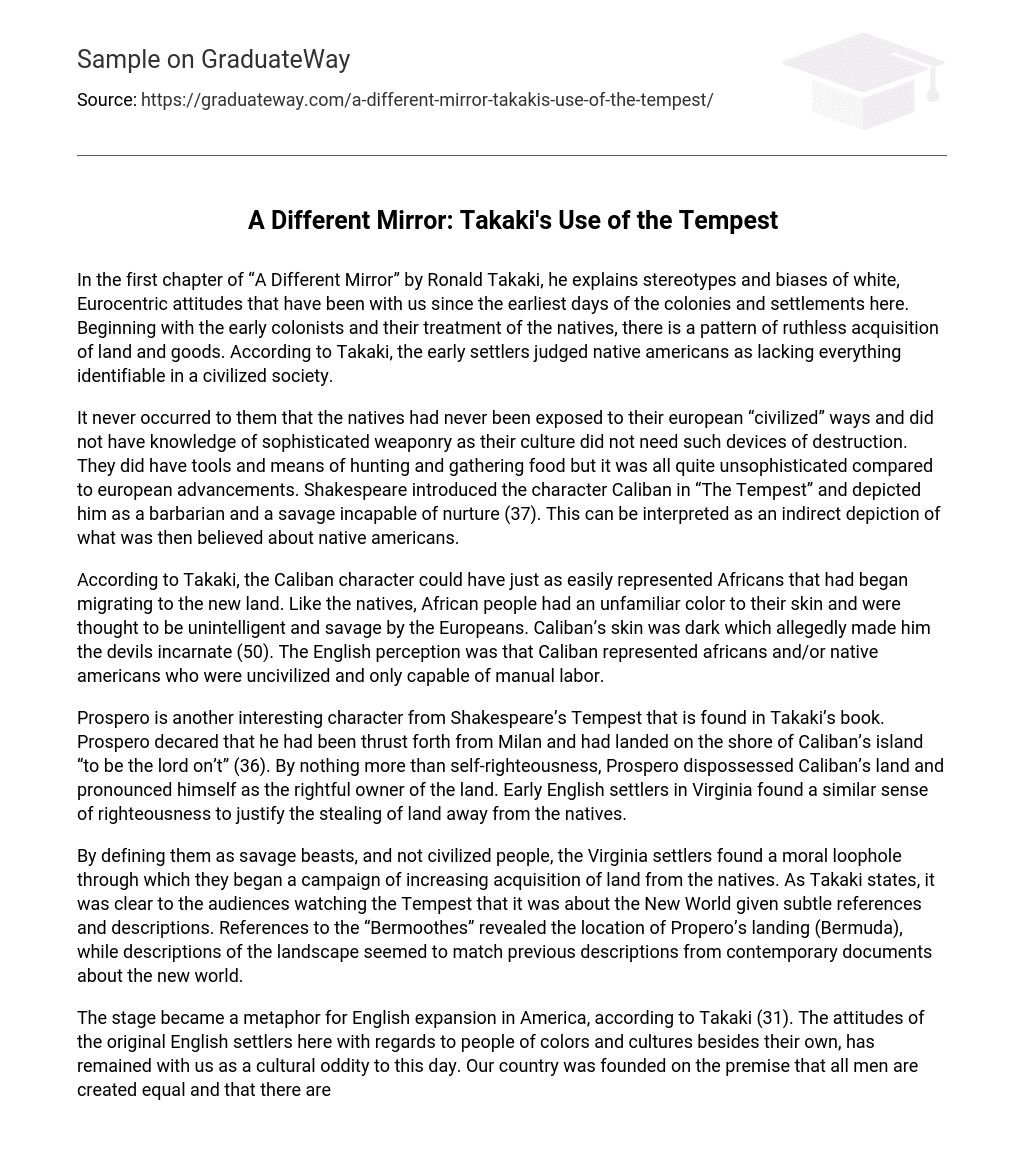In the first chapter of “A Different Mirror” by Ronald Takaki, he explains stereotypes and biases of white, Eurocentric attitudes that have been with us since the earliest days of the colonies and settlements here. Beginning with the early colonists and their treatment of the natives, there is a pattern of ruthless acquisition of land and goods. According to Takaki, the early settlers judged native americans as lacking everything identifiable in a civilized society.
It never occurred to them that the natives had never been exposed to their european “civilized” ways and did not have knowledge of sophisticated weaponry as their culture did not need such devices of destruction. They did have tools and means of hunting and gathering food but it was all quite unsophisticated compared to european advancements. Shakespeare introduced the character Caliban in “The Tempest” and depicted him as a barbarian and a savage incapable of nurture (37). This can be interpreted as an indirect depiction of what was then believed about native americans.
According to Takaki, the Caliban character could have just as easily represented Africans that had began migrating to the new land. Like the natives, African people had an unfamiliar color to their skin and were thought to be unintelligent and savage by the Europeans. Caliban’s skin was dark which allegedly made him the devils incarnate (50). The English perception was that Caliban represented africans and/or native americans who were uncivilized and only capable of manual labor.
Prospero is another interesting character from Shakespeare’s Tempest that is found in Takaki’s book. Prospero decared that he had been thrust forth from Milan and had landed on the shore of Caliban’s island “to be the lord on’t” (36). By nothing more than self-righteousness, Prospero dispossessed Caliban’s land and pronounced himself as the rightful owner of the land. Early English settlers in Virginia found a similar sense of righteousness to justify the stealing of land away from the natives.
By defining them as savage beasts, and not civilized people, the Virginia settlers found a moral loophole through which they began a campaign of increasing acquisition of land from the natives. As Takaki states, it was clear to the audiences watching the Tempest that it was about the New World given subtle references and descriptions. References to the “Bermoothes” revealed the location of Propero’s landing (Bermuda), while descriptions of the landscape seemed to match previous descriptions from contemporary documents about the new world.
The stage became a metaphor for English expansion in America, according to Takaki (31). The attitudes of the original English settlers here with regards to people of colors and cultures besides their own, has remained with us as a cultural oddity to this day. Our country was founded on the premise that all men are created equal and that there are unalienable rights to all men. And for hundreds of years we have professed our dedication to these principles but in practice it has been a rocky road toward redemption.
Since the inception of what is now known as the United States of America, we as a country have and continue to do, what we have told everyone else they should be doing all along. Together we slowly peel away the layers of our own prejudices that have existed longer than any of us have been alive, as we move toward an ideal that on paper has been around since the dawn of our great nation but in reality is still a goal to be attained.





